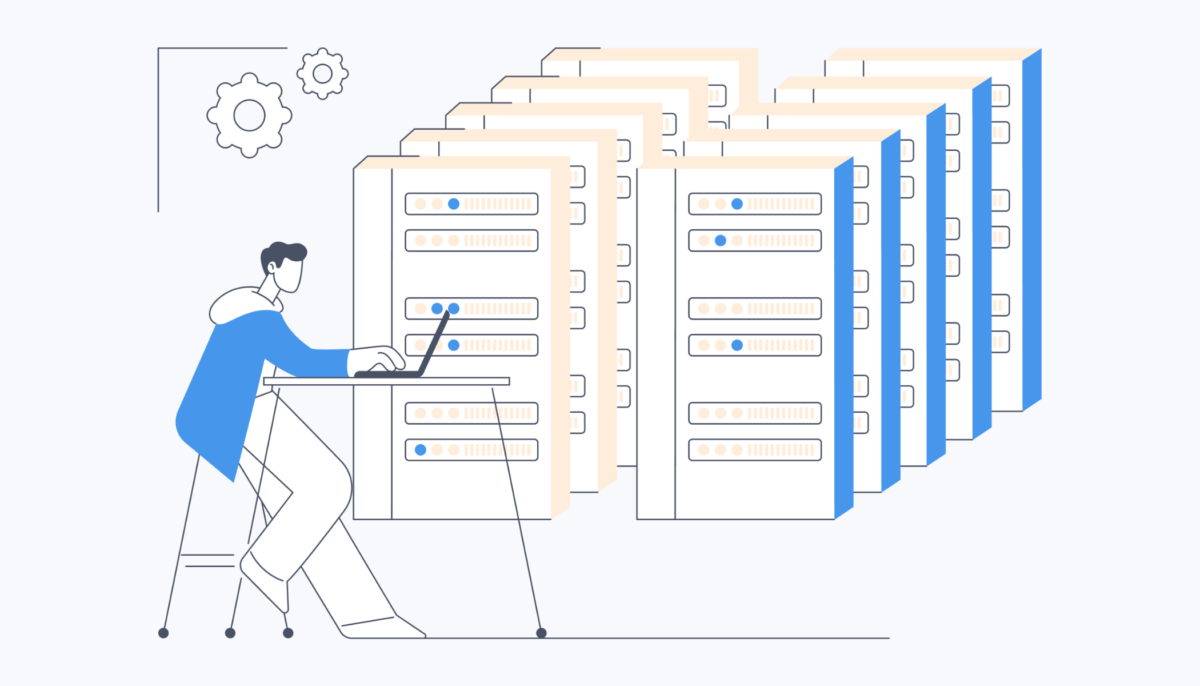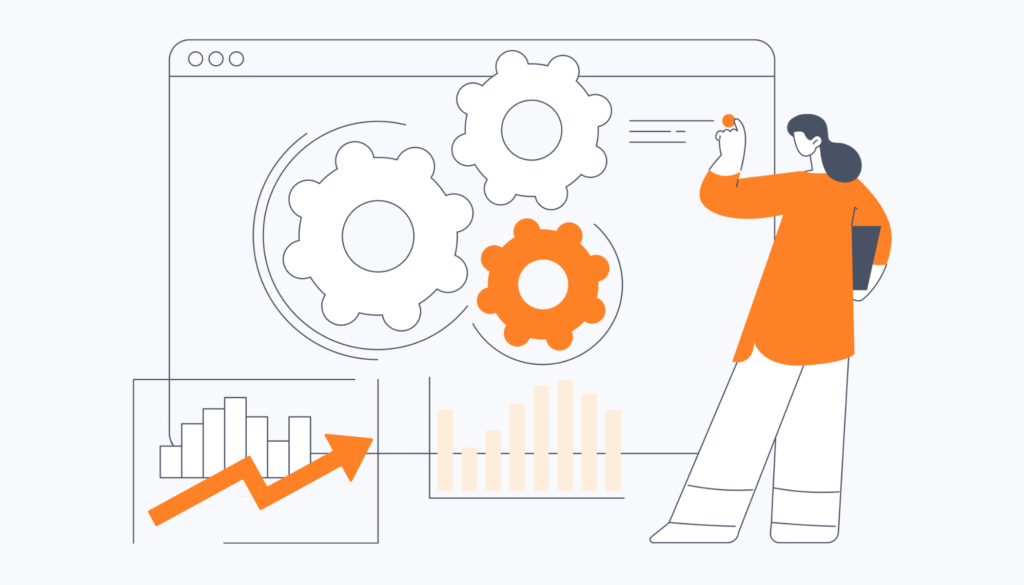What is an Insurance Aggregator? Unpacking the Benefits

As an insurance industry professional, you know just how complex and crowded the marketplace can be. Whether you’re an independent agent trying to compete with larger brokers, an emerging entrepreneur looking to establish your business, or a veteran seeking to optimize your offerings, the challenges of customer acquisition and efficient operations remain.
Insurance aggregators help independent insurance agents by providing access to multiple carriers and products, improving competitiveness and client options. Aggregators offer competitive commissions, valuable business tools, and reduced operational costs, all while maintaining agents’ independence. Membership enhances credibility and trustworthiness, making aggregator partnerships a worthwhile investment for agents seeking to expand their offerings.
In this comprehensive guide, we’ll explore the workings and benefits of insurance aggregators so you can leverage them for your business needs.
Key takeaways
- Key benefits for agencies include market access via more carriers and insurance products, along with competitive commissions.
- Aggregators differ from regional clusters by operating on a national level across markets.
- Look for aggregators with strong carrier relationships, profitable incentives, discounted tools, and a national presence.
- Partnering with the right aggregator can greatly strengthen an agency’s growth potential and competitiveness.
What is an insurance aggregator?
An insurance aggregator is a network or platform that connects independent insurance agents with multiple insurance carriers, streamlining the process of accessing a broad range of products. Instead of agents having to complete multiple carrier applications, background checks, and other administrative tasks to gain direct appointments, the aggregator simplifies this by providing access through their network. This alleviates much of the legwork for agents, allowing them to focus on serving clients while also benefiting from resources like CRM software, marketing tools, comparative rating systems, and lead generation platforms. By pooling resources and production volume, aggregators often negotiate higher commission rates and enhance agents’ credibility, helping them stay competitive and meet diverse client needs.
They partner with thousands of independent insurance agencies across the United States. By leveraging this collected premium volume from diverse agency partners, insurance aggregators can secure more favorable deals with major insurance carriers compared to what isolated agencies could negotiate on their own. The top 10 insurance aggregators have significant national reach and influence within the insurance industry.
Insurance aggregator vs. insurance cluster
- Insurance aggregators operate on a national level, bringing together independent agencies from different markets and regions across the country.
- Insurance agency clusters are regional alliances where agencies within a local geographic area band together, usually within a single state or metro region.
- Both insurance aggregators and clusters leverage their combined premium volume to gain more bargaining power with insurance carriers. However, clusters have a localized focus.
- Insurance clusters share carrier contracts specifically within their region, allowing them to meet minimum premiums for targeted carriers.
- Insurance aggregators establish broad relationships with national insurance carriers across their pooled premiums from agencies nationwide.
Insurance aggregator vs. insurance network
- Insurance networks like Allstate, State Farm, and Farmers connect local branded agencies to provide support services and expand resources and products available to their agency force and clients. Networks also tend to have captive agreements whereas aggregators allow more flexibility in who agencies are members of.
- Insurance aggregator companies are focused on consolidating premiums and books of business from independent agencies across the country to gain collective bargaining power with carriers in national negotiations.
- Both aggregators and networks can provide member agencies with technologies, tools, and training. However, networks have a franchise model, while aggregators are comprised of independent agencies.
- Insurance networks aim to expand capabilities for their branded member agencies and optimize the client experience.
- Insurance aggregators are consolidating premiums specifically to negotiate commissions, profit-sharing, and incentives with carriers on behalf of their member agencies.
Benefits of joining an insurance aggregator
Joining an insurance aggregator can offer major advantages for independent insurance agencies, including:
Access to more carriers and products
By joining an insurance agent aggregator, independent agencies can access leading national insurance carriers they likely wouldn’t qualify to partner with independently. This provides the ability to offer customers a much wider range of insurance products and service options. Agencies can expand their lines of insurance, giving customers comprehensive policies from home, auto, business, and specialty insurance that a single agency couldn’t provide independently. The collective bargaining power of the group allows expanded insurance carrier appointments.
Increased commissions
Leveraging the insurance aggregator’s combined premium volume and collective bargaining power allows member agencies to take advantage of significantly higher commission rates from top-tier carriers. Aggregators negotiate increased contingent commissions, profit-sharing opportunities, and incentives that most independent agencies cannot achieve alone. This can lead to major boosts in an agency’s revenue and bottom line.
Shared resources and support
Insurance aggregators provide valuable centralized training programs, agency management software, comparative rater tools, phone systems, HR services, and compliance/licensing assistance. This robust set of shared business resources and ongoing operations support can help agencies improve efficiencies, compliance, and service capabilities. Leveraging these shared resources and support systems is a key insurance agency growth strategy.
Retained independence
Unlike captive or clustered agency arrangements, members of insurance aggregators maintain complete autonomy over their business operations and decision-making. Agencies preserve their identity while benefiting from the aggregator’s negotiating power and resources. This independence is a key distinction from carrier-controlled agency networks. Joining an independent insurance agency network allows for flexibility and control.
Drawbacks of joining an insurance aggregator
While insurance aggregators provide valuable benefits, there are also some potential drawbacks for agencies to consider.
Membership and admin fees
Insurance aggregators typically charge monthly or annual membership fees, adding to overhead costs, and may also take an admin fee or override carrier commissions. However, some options, like First Connect, eliminate membership fees entirely. This setup can be advantageous for agents who prefer cost-effective access to aggregator benefits without ongoing fees.
Limited carrier and product options
Some insurance aggregators limit agencies to selling products from a select group of carrier partners, potentially restricting product variety. But, certain aggregators offer access to over 100 carriers across all lines of business, greatly expanding product options and enabling agents to meet a broader range of client needs. This flexibility can make aggregators an attractive choice for agents seeking diverse carrier access.
Requirements and restrictions
Aggregators may impose contractual requirements around maintaining minimum premium volume, geography limitations, or approved product mix. This can limit flexibility.
Potential bias
There is a risk aggregators may be biased towards promoting their own products, services, and carrier relationships rather than objectively serving an agency’s best interest.
Brand dilution
Over time, marketing under the aggregator’s brand can dilute an agency’s unique brand identity in its local market.
Misconceptions about insurance aggregators
When evaluating whether to join an insurance aggregator, it’s important to understand common misconceptions and myths about how these groups operate. Many agencies have some key misunderstandings around aggregators. Some areas where perception may not match reality include:
Misconception 1: Aggregators are only for startups and small agencies
Agencies of all sizes leverage aggregators. According to Insurance Journal, over 70% of the 40,000+ agencies in the U.S. are part of some type of network. Their Top 20 Agency Partnerships list shows that 50% of member agencies earn $2M+ in revenue. Clearly, larger, established agencies also utilize aggregators to access resources, community, and growth potential.
Misconception 2: All insurance aggregators are the same
There are many different types of aggregation models, including networks, pure aggregators, clusters, partnerships, franchises and combination models. Each has unique structures around costs, carrier access, policy ownership, services provided, and more. It’s important not to lump all aggregators together but to evaluate each model individually based on factors like upfront and ongoing costs, commission potential, technology requirements, profit-sharing calculations, and services offered.
Misconception 3: Joining an aggregator means loss of agency independence
Most aggregators allow agencies to retain their identity, clients, and autonomy in operations. However, some models have more restrictions in areas like products sold, territories and breakup fees. Understanding limitations on independence is important in selecting the right fit.
Misconception 4: The only benefits of aggregators are carrier access and compensation
While expanded carrier access and increased compensation are common motivators, aggregators offer much more. Key benefits include access to advanced technologies, peer networking, benchmarking data, carrier advocacy, shared best practices, and tailored growth strategies. For example, First Connect provides not only carrier access and competitive compensation but also cutting-edge tools, personalized support, and resources designed to help agencies thrive.
Misconception 5: Aggregators take commission splits from agencies
Many aggregation models allow agencies to keep 100% of commissions. However, some impose fees, overrides on carrier payments, or revenue-sharing agreements. Again, confirming compensation model specifics is key before joining.
Tips on choosing the right insurance aggregator to get the most out of your membership
Joining the right insurance aggregator that aligns with your agency’s goals and needs is key to maximizing the membership benefits. When evaluating different insurance aggregators, keep these tips from First Connect in mind:
Clearly define your goals
Take time to clearly outline what you hope to achieve from an insurance aggregator membership before evaluating options. Key goals may include expanding carrier appointments, increasing commission rates, obtaining technologies, benchmarking performance, supplementing staff, or positioning for acquisition. Defining priorities will help assess fit.
Research and compare multiple options
Don’t just look at the big, well-known names in insurance aggregators. Take time to thoroughly research lesser-known groups and understand their different structures before comparing them. Look beyond the marketing messages to get a well-rounded perspective.
Understand the compensation model
Ensure you thoroughly analyze how the aggregator handles your commissions, fees, revenue sharing, and bonus structures. Get specifics on the percentage of commissions kept, monthly fees, splits on incentive payments, etc., to model financial impact.
Evaluate shared resources
Look closely at the full suite of resources and tools shared with member agencies to confirm they will provide meaningful value to your operations. Assess the HR support, compliance services, comparative raters, and agency management systems and determine if they meet your needs.
Consider an aggregator’s specialty
Some aggregators have a niche focus or advantage based on their carrier relationships, geographic strength, services, or tools that align with an agency’s specific goals. Identify an aggregator’s claim to fame.
Talk to existing members
Get insider feedback from current member agencies on the pros and cons of the aggregator contract, deliverables, and their experience. Get a real-world perspective before committing.
Review contract terms closely
Carefully evaluate contractual terms like minimum premium requirements, geographic restrictions, quotas, policy ownership, termination policies and other commitments before signing to ensure the terms work for your agency.
Final thoughts
Insurance aggregators can offer significant benefits for independent insurance agencies of all sizes looking to expand resources, maximize growth, and boost their competitive positioning. However, not all aggregation models are created equal. Taking time to clearly evaluate your agency’s specific goals and thoroughly vet the structures, compensation models, shared services, and contract terms of various aggregators is crucial for finding the right fit.
Avoid common misconceptions, leverage insider input, and ensure alignment with your strategic priorities. With the right partnership, insurance aggregators provide a powerful opportunity for agencies to access key tools, negotiate from a place of collective strength, and compete at a higher level while still retaining autonomy. The aggregator landscape continues to evolve rapidly, creating advantages for agencies that are savvy in selecting the optimal group for their needs.
FAQ
What is the difference between an insurance agency aggregator and an agent?
An insurance aggregator is an organization that independent insurance agencies join to access expanded resources, carriers, and benefits. An insurance agent sells policies directly to consumers on behalf of insurance carriers.
What is aggregation in an insurance policy?
Aggregation in insurance refers to combining or bundling multiple separate insurance policies under one larger master policy to receive more favorable rates and terms.
What are insurance agent aggregator sites?
Insurance aggregator sites are websites where agents can compare quotes from multiple insurance carriers. These sites take a customer’s information and provide real-time quotes side-by-side from various insurance companies.
Who can benefit from insurance aggregator companies the most?
Independent insurance agencies of all sizes can benefit from joining the right insurance aggregator. Smaller agencies gain national scale, while larger agencies benefit from expanded carrier appointments, shared resources, and service capabilities.



